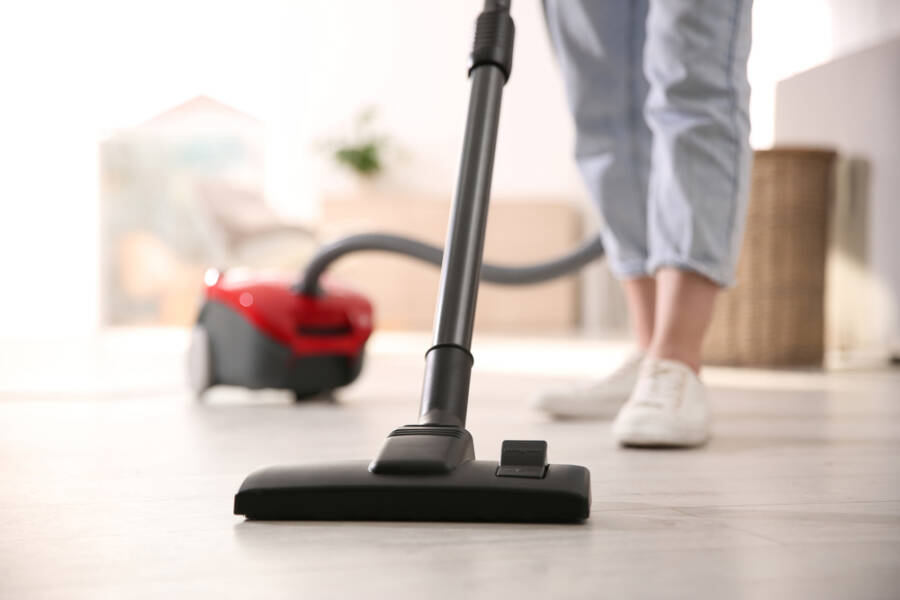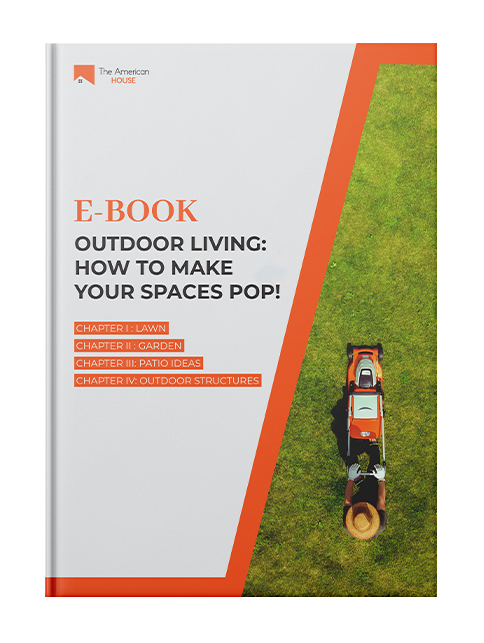Did you know about these dust-causing habits?
Are your allergies acting up, or is your home feeling dirtier than usual? Maybe you’re always wondering why your house is so dusty.
Even though the culprit could be something as straightforward as leaving the windows open or perhaps construction or road work right outside your home, there are many causes you’re probably not thinking about.
And the reality is that you, yourself, may have some dust-causing habits you weren’t even aware of! But don’t worry! The American House has your back.
Continue reading to learn more about 10 reasons why your home gets dusty so easily and what you can do to reduce that icky film around your home.

Dust-causing habit: Dusting with filthy rags
Are you still using an old T-shirt as a rag for dusting? Chuck it in the trash right now and head for the supermarket. That modern little miracle called microfiber, which, due to its fine synthetic fibers, catches much more dust than any simple cotton fabric ever could.
To make cleanups quick and easy, choose a microfiber wand duster for close corners and shelves and a regular cloth for dusting counters and tabletops.
Dust-causing habit: Forgetting about your filters
Filthy air conditioner and furnace filters are relatively ineffective and can cause your HVAC system to blow all that dust right back into your home. Purchase filters in bulk to get a better price, then change them monthly for a cleaner home and healthier indoor air.
Dust-causing habit: Letting the air in your home get too dry
We all know that dust loves static, which helps debris and dirt cling to surfaces better. To stop dust from getting too cozy in your home, keep the humidity in your spaces at about 40 to 50%.
Use a humidifier in winter, or keep trays of water on top of your radiators to add a bit of that much-needed H2O to the air.
Dust-causing habit: Dirty pets
Unfortunately, there are certain sources of dust that no one wants to talk about. But we must! Dogs, cats, and most other household pets tend to be a significant source of dust. Don’t worry, though.
We’re not saying you should get rid of your beloved pooch. Yet, keeping them out of areas where dust typically accumulates can reduce dust levels. You should also consider bathing your furry companions or sending them to the groomer more often.
Dust-causing habit: Carpets and area rugs
Floor coverings like rugs and carpets are huge dust producers and magnets. In fact, the fuzzier they are, the more dirt they can carry.
So if you love a comfy carpet under your feet, you should consider swapping shag rugs for flat-weaves and vacuum more often to prevent buildup.
But remember that vacuuming isn’t always enough: To make sure you have a genuinely allergen-free floor, regularly take your rugs outdoors and give them a good shake to eliminate any unwanted dust clouds.
Dust-causing habit: Ignoring your pillows
Dust mites are minuscule critters that feed on skin flakes and are infamous for causing allergic reactions in some individuals. Those little bugs love to gather in bed linens, especially pillows.
So to keep these pests at bay, be sure to wash and dry your pillows as often as possible and replace them every year or so. And don’t forget about your duvet covers and comforters, either.
They need a good scrub just as frequently to ensure you have a clean and serene place to catch your much-needed Z’s.
Dust-causing habit: Neglecting your doormat
This isn’t something we think about too much, if we’re being honest. But small dirt particles get tracked into our homes whenever a pet or person comes or goes. Cleaner shoes obviously mean less dust.
So it’s essential to lay a heavy-duty doormat at each of your entrances and to wash them regularly.
Better yet, keep a rack or basket near your door, and ask your friends and family to kick off their shoes and get more comfortable as soon as they walk in. This should help prevent the tracked-in dirt from moving to a smaller area.

Dust-causing habit: Ignoring curtains and blinds
Think about it: When was the last time you cleaned your blinds? Hanging right next to open windows, they’re like powerful magnets for each stray bit of dust particles that blow in or out.
So, to freshen them up a bit, go over your window coverings with the dusting attachment on your vacuum or a microfiber cloth.
And curtains need the same amount of TLC. Use a small handheld vacuum to get rid of any debris, and take your curtains down and wash or dry-clean them at least once a year.
Dust-causing habit: Vacuuming with an old vacuum
A quality vacuum can make a massive difference when it comes to dust and how clean a floor is. If you’re using an outdated model that has old filters, yours is most likely not cleaning up as much grime as it should be. This means more effort and inferior results.
So, if you’re using an ancient model, we highly recommend upgrading to a new model with a HEPA filter, which can catch even the tiniest particles of pollen and dust and leave the air smelling much better.
Dust-causing habit: Cluttered shelves
You might love your collection of knickknacks. But you probably don’t like taking them down one by one each week to clean your shelves thoroughly. That means that lots of dust particles settle comfortably wherever your tiny objects live.
To keep your collections from accumulating dust, free up some of those items carefully to make cleaning day a breeze. And if you don’t want to part with a single one, consider storing them in glass-door cabinets instead.
Bonus: Here are a few extra tips to avoid dust-causing habits
With a few simple tweaks to your habits, you can substantially lower the dust that settles in your living spaces. Remember that even when combined, these efforts won’t entirely remove dust from your home. But they can decrease your exposure to allergens and dust.
Wipe down your hard surfaces more often
You might want to consider wiping down your countertops and other hard surfaces more often to eliminate dust. Use a microfiber cloth or duster if possible, and make sure you always begin at the top and work your way down.
This way, you won’t push all that dust back onto something you just cleaned. Pro Tip: Consider dusting before vacuuming to avoid leaving residue on your floors and carpet.
Eliminate any sources of dust mites
If you or someone in your home has asthma or allergies, we get that the war doesn’t stop at eliminating dust.
Even though dust mites are microscopic, their waste and body parts can be a powerful allergen to those affected by it, causing sneezing, itchy eyes, runny nose, congestion, difficulty breathing, and many other things.
Sadly, it’s rather impossible to get rid of dust mites for good. But you can take certain steps to improve the situation significantly.
Besides reducing dust buildup and using allergy-proof bedding, continually washing your bedding on a hot cycle at 130 degrees can kill dust mites and rid your bedding of dead skin, which dust mites like to munch on.

Vacuum more frequently
One uncomplicated solution to reduce all the dust in your home is by vacuuming more often. If you’re already vacuuming weekly, and your vacuum is fairly new, you may need to clean or replace the filter.
If your vacuum has a dirt cup, you should empty it out after every use to maximize the suction. And if, no matter what you do, your vacuum isn’t working properly, consider buying a new vacuum.
Are you guilty of these dust-causing habits? Please feel free to share your thoughts with us in the comments section. And if you liked this article, we think you might also enjoy reading: Mr. Clean Magic Erasers Are Fantastic! Unless You Use Them on These 12 Things




